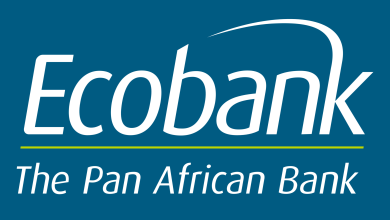Retirement Savings: Your Guide to Building a Secure Financial Future
Retirement Savings: Your Guide to Building a Secure Financial Future
Retirement Savings: Your Guide to Building a Secure Financial Future
Retirement savings are a vital component of securing a comfortable and worry-free future.
However, navigating the world of retirement savings can be overwhelming, especially with the numerous options available.
In this blog content, we will provide you with a comprehensive guide to retirement savings, address frequently asked questions, and offer expert answers to help you make informed decisions about building a secure financial future.
Why is Retirement Savings Important?
Retirement savings are essential because they allow you to maintain your desired standard of living once you stop working. Without adequate savings, you may face financial hardships or have to rely solely on government benefits. By planning and saving for retirement, you can secure your financial future and enjoy the lifestyle you envision.
How Much Should I Save for Retirement?
The amount you should save for retirement depends on factors such as your desired lifestyle, expected expenses, healthcare costs, and retirement age. While there is no one-size-fits-all answer, a general guideline is to aim for saving 10% to 15% of your annual income. However, it’s best to consult with a financial advisor who can help you determine a realistic savings goal based on your specific circumstances.
What Are the Different Retirement Savings Vehicles?
There are various retirement savings vehicles available, including employer-sponsored plans like 401(k)s and 403(b)s, individual retirement accounts (IRAs), Roth IRAs, and simplified employee pension plans (SEPs). Each option has its own advantages, contribution limits, and tax implications. Understanding the features of each vehicle can help you choose the ones that align with your financial goals.
How Does a 401(k) Work, and Should I Contribute?
A 401(k) is an employer-sponsored retirement plan that allows you to contribute a portion of your salary before taxes. Many employers offer matching contributions, which is essentially free money. It’s generally advisable to contribute to a 401(k) if your employer offers a match, as it provides an instant return on your investment and helps grow your retirement savings.
What Is an Individual Retirement Account (IRA), and How Does It Benefit Me?
An Individual Retirement Account (IRA) is a personal retirement savings account that allows you to contribute money on a tax-deferred basis. Contributions to a traditional IRA may be tax-deductible, and the investment growth is tax-deferred until retirement. IRAs offer a wider range of investment options compared to employer-sponsored plans, providing more control over your retirement savings.
What Is a Roth IRA, and How Does It Differ from a Traditional IRA?
A Roth IRA is another type of individual retirement account that offers tax advantages. Contributions to a Roth IRA are made with after-tax dollars, meaning they are not tax-deductible, but qualified withdrawals in retirement are tax-free. Roth IRAs are particularly beneficial if you expect to be in a higher tax bracket during retirement or want tax-free income in retirement.
Can I Contribute to Both a 401(k) and an IRA?
Yes, you can contribute to both a 401(k) and an IRA. However, the maximum annual contribution limits apply to each account type separately. It’s important to understand the contribution limits and any income-based restrictions for IRAs to ensure you maximize your retirement savings opportunities.
How Should I Allocate My Retirement Savings Across Investments?
The allocation of your retirement savings across investments depends on your risk tolerance, time horizon, and financial goals. A diversified portfolio that includes a mix of stocks, bonds, and other investments can help balance risk and potential returns. Consider your risk tolerance, investment time horizon, and consult with a financial advisor to develop an investment strategy that aligns with your retirement goals.
Are There Any Tax Advantages to Retirement Savings?
Yes, there are tax advantages to retirement savings. Contributions to certain retirement accounts, such as 401(k)s and traditional IRAs, may be tax-deductible, reducing your current taxable income. Additionally, the investment growth within these accounts is tax-deferred until you withdraw the funds in retirement. Roth IRAs offer tax-free withdrawals in retirement. Understanding these tax advantages can help optimize your retirement savings strategy.
What Steps Can I Take to Boost My Retirement Savings?
To boost your retirement savings, consider strategies such as increasing your contributions, taking advantage of employer matching contributions, automating your savings, reducing unnecessary expenses, and minimizing debt. Additionally, explore opportunities to generate additional income through side hustles or part-time work. Consistent and disciplined saving habits are key to building a robust retirement nest egg.
Is it Ever Too Late to Start Saving for Retirement?
It’s never too late to start saving for retirement. While starting early provides more time for your savings to grow, even if you’re closer to retirement age, you can still make significant progress. Assess your financial situation, set realistic goals, and make a plan to catch up on savings. Consider working with a financial advisor who can help you optimize your savings strategy based on your timeline.
How Can I Ensure a Secure Retirement with My Savings?
To ensure a secure retirement with your savings, monitor your investments regularly, review your retirement plan periodically, and make adjustments as needed. Maintain an emergency fund to handle unforeseen expenses and consider strategies to protect against inflation. It’s important to have a comprehensive retirement plan that encompasses both financial and lifestyle aspects to enjoy a secure and fulfilling retirement.
Conclusion
Retirement savings are crucial for securing a financially stable future. By understanding the different retirement savings vehicles, contribution strategies, and investment options available, you can make informed decisions to build a robust retirement nest egg.





